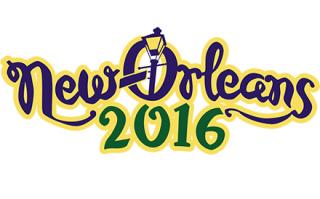Farmers eager for information that can help them get through low commodity prices &ndash as well as a little sunshine &ndash gathered this week at the 21st annual Commodity Classic in New Orleans. 
Commodity Classic is America&rsquos largest farmer-led, farmer-focused convention and tradeshow, produced by the National Corn Growers Association, American Soybean Association, National Association of Wheat Growers, National Sorghum Producers, and the Association of Equipment Manufacturers. The 2016 show drew in record crowds with 9,770 attendees, compared to last year's 7,936.
If you weren&rsquot able to make it down to the Big Easy, have no fear. Successful Farming magazine and Agriculture.com editors have been working the show floor all week to bring you the latest news.
Editor&rsquos note: To get the full New Orleans experience, we recommend reading with jazz music in the background. Cue the Louis Armstrong.
USDA Calls for Mandatory GMO Labeling
USDA Secretary of Agriculture Tom Vilsack said he believes GMO labeling will need to be mandatory on the national level to get a bill through the Senate. However, he does believe there is enough support in the House and the Senate to get the Trans-Pacific Partnership passed.
As he enters his eighth year as the secretary of ag, Vilsack was also a little nostalgic as he addressed the media at Commodity Classic, reflecting on his legacy at the USDA.
Ethanol to the Rescue, Again, of Corn Prices
Can ethanol help chew through record-high global corn supplies? Yes, according to the U.S. Grain Council President (USGC) and CEO Tom Sleight. The USGC has surveyed the world on ethanol import prospects, specifically looking at opportunities in Japan, China, India, and Mexico.
Farmer Panel Stresses Ag Efficiency and Innovation
One way to avoid talking about low commodity prices at a farmer conference is to explore the methods of becoming more efficient. At a farmer panel, innovative producers shared their efforts to improve their operations bottom line.
Meanwhile, agribusiness leaders took to the stage to reassure farmers that their companies will be investing in innovation despite a tough farm economy.
Don&rsquot Curb Yield Potential by Slicing Herbicide Label Rates
Many farmers at Commodity Classic &ndash like farmers across the country &ndash are looking for ways to slice inputs to save money in 2016. Just be sure you aren&rsquot slicing your yield potential, too, warns Randy Meyers, with Bayer CropScience. It may be tempting to shave herbicide label rates to reduce your chemical bill, but that can reduce weed control and for resistant weed biotypes.
Six Food and Ag Trends You Need to Know
Despite the crash in commodity prices, long-term the outlook for agriculture is bright. However, there&rsquos no doubt that agriculture and consumer preferences are changing. David Hollinrake, vice president of marketing and portfolio management for Bayer CropScience, shared six food and ag trends that all farmers should know.
WestBred Launches 'Wheat Insight System' to Ensure Seeding Accuracy
For years, many farmers have planted wheat seed in terms of pounds per acre, not seeds. But seed-per-pound counts can vary depending on variety or even the year in which the seed is grown. WestBred hopes to improve wheat seeding accuracy with its new Wheat Insight System, announced at Commodity Classic. The system allows growers to buy and plant wheat seed to optimize yield and profit potential, and provides wheat seed suppliers with agronomic recommendations for growers.
Will Farmers See a Turnaround First?
Are we nearing the end of the farm economy downturn? Ken Zuckerberg, Senior Analyst for Farm Inputs for Rabobank, believes the bottom is within six months away. “If this year becomes the third consecutive year of negative income, we think that a lot of farmers will have a lot less financial flexibility, operating capital will dry up &ndash and that becomes the point of maximum pain. At that point, we see planning discipline coming back and optimizing yield,” he said at a Commodity Classic session.
|